The Way We Live Now
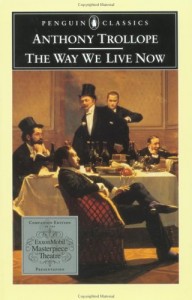 I started reading Anthony Trollope’s The Way We Live Now last spring. Sherry of Semicolon had mentioned when she got her Kindle for Christmas that this was one of the free books she downloaded, and as a Trollope fan I followed her example. I’ve read The Warden and Barchester Towers, and I like Trollope’s discerning and gentle understanding of character.
I started reading Anthony Trollope’s The Way We Live Now last spring. Sherry of Semicolon had mentioned when she got her Kindle for Christmas that this was one of the free books she downloaded, and as a Trollope fan I followed her example. I’ve read The Warden and Barchester Towers, and I like Trollope’s discerning and gentle understanding of character.
The Way We Live Now was a little more difficult going, and I set it aside until recently. Over the last two weeks I’ve been working through it. It’s the quintessential Victorian novel, originally published serially, and therefore “built to last” — full of plots and sub-plots and twists and turns. Trollope’s motto seems to have been, “Make ’em laugh, make ’em weep — make ’em wait.”
You have to be in the mood to take on such a novel, and I was. But even so, the substance of the book is darker and more satirical than the other Trollope novels I’ve read. It was published in 1875, a few years after Trollope returned to England and was shocked and horrified by the crass materialism and superficiality he found. These are his targets, and his characters are liberally clothed in unattractive traits as they attempt to manipulate their way to a good living.
All of them are playing a game. They bring their form of capital — wealth, class, or gender — to the table and try to make it work for them. All classes are represented, from the pastoral to the aristocratic. The central figure is Melmotte, a rich but crass financier with a mysterious past who attracts all of London into a constellation around him. He’s a catalyst for revealing what the other characters are willing to do to get ahead, and very few of them have any moral criteria beyond money.
Anyone who reads this will see the likeness to today’s world. Melmotte’s business is the railroad, and his rise and, ultimately, fall parallel the housing bubble that wrought havoc on our own economy. (At least, according to my very basic understanding of it!) The only difference is that in keeping with the expectations of his chosen genre, Trollope brings it all to a satisfying conclusion somehow. The right people end up together. Some of them find real love despite unpromising beginnings. The verdict on aristocracy, and on the importance of wealth or class, seems to be that it’s a minefield to be navigated carefully, one that can very easily blow up and destroy the hope of happiness — which, despite their talk, all the characters long for. Trollope suggests that happiness, though it’s often mistakenly attributed to material status by most of the characters in the novel, is really a spiritual commodity — one that can’t be bought or sold, but which is bound up with a person’s basic integrity.
It seems obvious, but apparently we need reminding — 137 years later, in a world eerily similar to the one Trollope examines in The Way We Live Now.
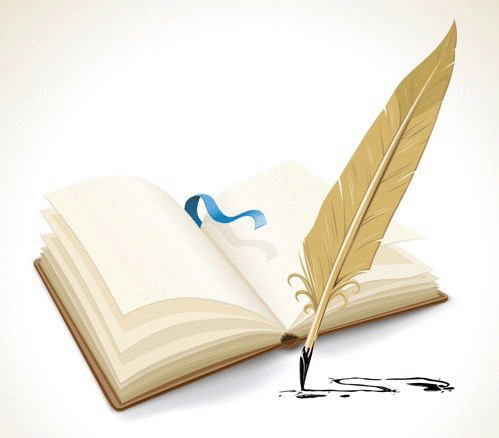
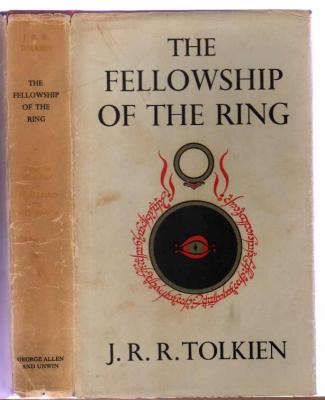
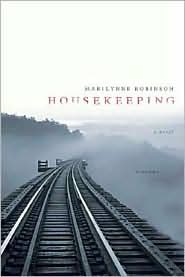
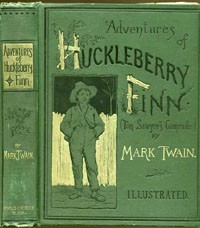
3 Comments
Barbara H.
I’ve never read Trollope. It does sound like there are some striking similarities to today’s world.
Sheila at Dodging Raindrops
I enjoyed this book and the movie, too. :) I haven’t read the Warden yet, though.
hopeinbrazil
I have avoided this book because the movie was a bit disturbing. But my sister enjoyed it and now with your recommendation (and the reminder that it’s free on Kindle) I’ll be sure to read it someday soon.